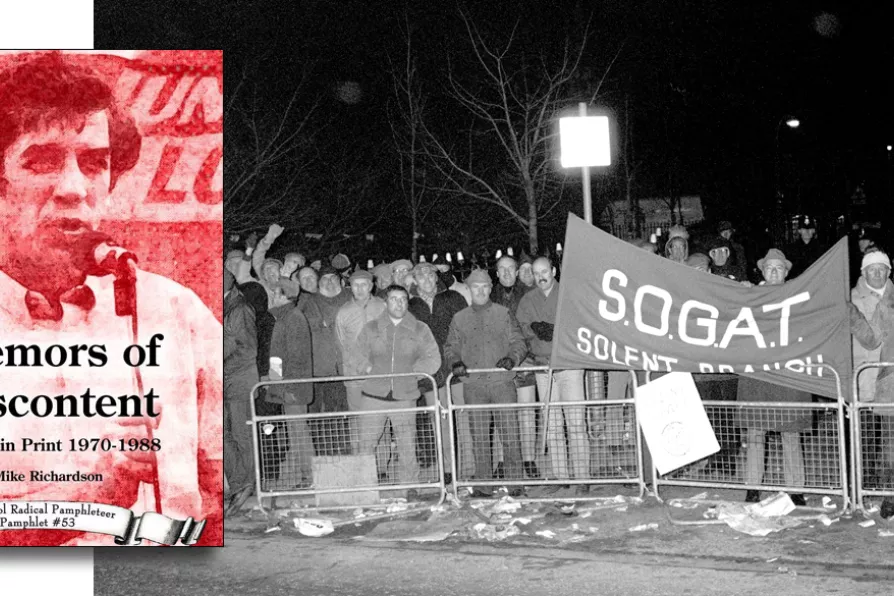MARIA DUARTE reviews Desperate Journey, Blue Moon, Pillion, and Wake Up Dead Man: A Knives Out Mystery

 SEMINAL MOMENT: Sogat picket, Wapping, 1986
SEMINAL MOMENT: Sogat picket, Wapping, 1986
SOME on the left will have locked in their memory actions and moments which became vital to their political awakening and growth in consciousness, which Mike Richardson’s autobiographical account Tremors of Discontent calls to mind.
Powerfully stark and honest, he recounts and assesses his experiences in the 1970s and 1980s while an active print worker and SOGAT trade unionist in a Bristol printworks.
Richardson recounts his post-war boyhood as the son of working-class parents on Lockleaze council estate in Bristol’s northern suburbs, his secondary-modern schooldays and his first permanent job in a works producing printed packaging.

The creative imagination is a weapon against barbarism, writes KENNY COYLE, who is a keynote speaker at the Manifesto Press conference, Art in the Age of Degenerative Capitalism, tomorrow at the Marx Memorial Library & Workers School in London

LYNNE WALSH previews the Bristol Radical History Conference this weekend












